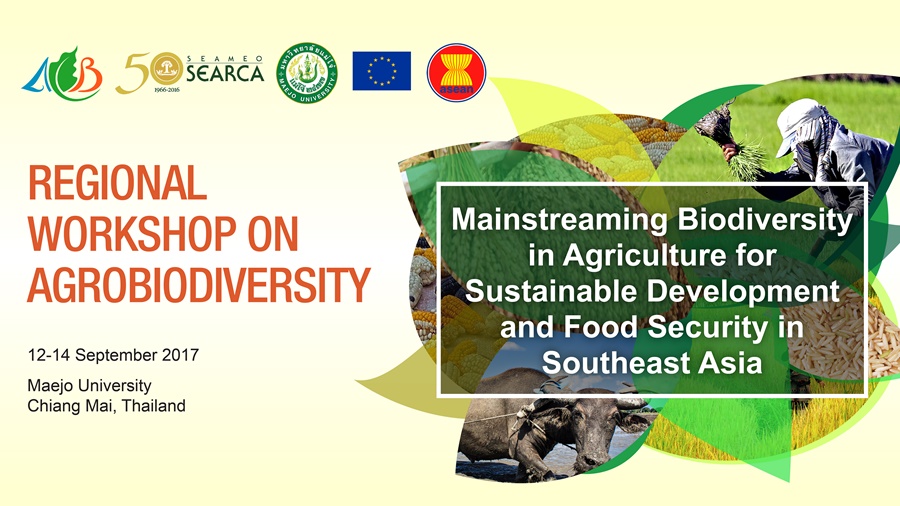
Agricultural biodiversity or agrobiodiversity is defined by the United Nations Food and Agriculture Organization (UN-FAO) as the "variety and variability of animals, plants, and micro-organisms that are used directly or indirectly for food and agriculture, including crops, livestock, forestry, and fisheries." It is recognized as pivotal in achieving many global goals, including inclusive and sustainable agricultural and rural development (ISARD) owing to the increasing contribution of agriculture in building the economies of many countries in Southeast Asia. However, understanding agrobiodiversity and its important link with ecosystem goods and services and their benefits to the society is quite limited. Though there are initiatives on agrobiodiversity in the region, mainstreaming these efforts in agriculture and environmental policies, plans, strategies and programs remains to be a challenge for many ASEAN Member States (AMS).
It is in this context that the Southeast Asian Regional Center for Graduate Study and Research in Agriculture (SEARCA), the ASEAN Centre for Biodiversity (ACB), and Maejo University (MJU) collaborate to hold the Regional Workshop on Mainstreaming Biodiversity in Agriculture for Sustainable Development and Food Security in Southeast Asia at the International Education and Training Center of MJU in Chiang Mai, Thailand on 12-14 September 2017.
The regional workshop will gather different sectors and institutions working on agrobiodiversity in the region to discuss and share status and trends, including the underlying causes of change and cross-cutting issues, and knowledge of its management and conservation practices in the region. It will be a stocktaking activity towards mapping of priority areas for cooperation on agrobiodiversity in Southeast Asia including research, capacity building, and knowledge management.
Among the topics to be discussed are linking agrobiodiversity with food systems and nutrition; strategies and cross-cutting initiatives linked to Sustainable Development Goals (SDGs) to build the regional capacity for sustainable management and use of agrobiodiversity; agriculture, sciences, and gender with implications for research and capacity development about agrobiodiversity in Southeast Asia; andresearch and systematic data gathering initiatives and concepts on agrobiodiversity in Southeast Asia. Yet more topics, including specific cases, will be discussed under three parallel sessions covering governance, policies, and relevant legal instruments on agrobiodiversity; conservation and sustainable use; and gender and social contexts.
Small group discussions will focus on key elements of a draft Program of Work on Agrobiodiversity, which will be later threshed out and submitted to the appropriate ASEAN bodies and discussed further with research and development organizations.
Around 80 participants are expected from the ministries of environment and of agriculture of the AMS, selected universities across the region, research organizations, and development partners.